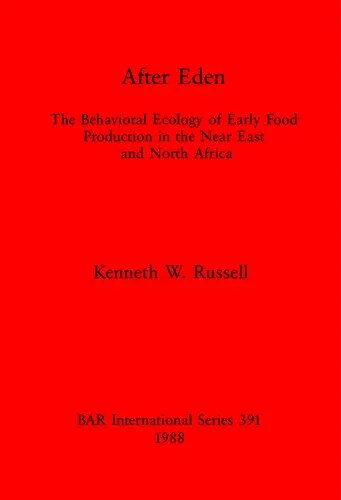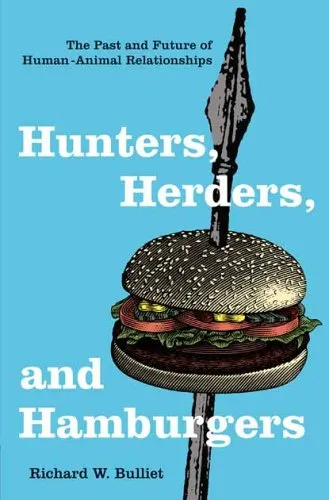After Eden: Behavioral Ecology of Early Food Production in the Near East and North Africa
4.0
Reviews from our users

You Can Ask your questions from this book's AI after Login
Each download or ask from book AI costs 2 points. To earn more free points, please visit the Points Guide Page and complete some valuable actions.Related Refrences:
Introduction to "After Eden: Behavioral Ecology of Early Food Production in the Near East and North Africa"
Welcome to a journey through the intricacies of early human societies transitioning from foraging to farming, set against the backdrop of the Near East and North Africa. "After Eden" delves into the transformative period when humans began community-centered production of food, setting the foundation for modern civilization.
Detailed Summary
In "After Eden: Behavioral Ecology of Early Food Production in the Near East and North Africa," I, Kenneth W. Russell, explore the profound change from hunting and gathering to established agricultural societies. This shift isn't merely about farming; it's about how human behavior adapted to new ecological and social environments. The book investigates various behavioral strategies of early humans, exploring how these influenced the selection of plant and animal species for domestication.
Spanning approximately 10,000 BCE to 3,000 BCE, the narrative weaves archeological evidence with ecological perspectives to offer a comprehensive view of this dynamic period. Focusing on geographical regions like the Levant, Mesopotamia, and the Nile Valley, the book examines how environmental factors and resource distribution necessitated innovation in food production methods. Special attention is given to the interplay between ecological pressures, human ingenuity, and the emerging complexity of social structures.
Key Takeaways
- Understanding the ecological and social triggers for transitioning from foraging to agriculture.
- The significance of geographical regions and climate in shaping agricultural practices.
- Insights into the selection process of species for domestication based on behavioral ecology.
- The role of early food production in the development of complex societal structures.
- Exploration of archeological evidence supporting the timeline and methods of early agriculture.
Famous Quotes
"The journey from hunter-gatherers to agrarian societies reflects not just a change in lifestyle, but a profound evolution in human ecology and social organization."
"In these early fields, not only were seeds planted, but the roots of civilization took hold."
Why This Book Matters
"After Eden" holds significant relevance in understanding the origins of modern society. By analyzing the adaptive strategies of early humans, this book uncovers the roots of human innovation and resilience. It sheds light on how the environmental and social challenges of the past shape current agricultural and societal practices.
Beyond its academic contributions, the book serves as a bridge connecting the reader to their ancient ancestors, offering insights into the fundamental question of what it means to be human. As present-day societies grapple with ecological and food security challenges, "After Eden" offers valuable lessons on adaptation and sustainability from our collective past.
In conclusion, the behavioral ecology of early food production is a testament to human ingenuity, resilience, and the ceaseless pursuit of thriving amidst change. This book is not only an examination of the past but a crucial lens through which we can view present and future challenges in food production and human adaptation.
Free Direct Download
You Can Download this book after Login
Accessing books through legal platforms and public libraries not only supports the rights of authors and publishers but also contributes to the sustainability of reading culture. Before downloading, please take a moment to consider these options.
Find this book on other platforms:
WorldCat helps you find books in libraries worldwide.
See ratings, reviews, and discussions on Goodreads.
Find and buy rare or used books on AbeBooks.
1228
بازدید4.0
امتیاز50
نظر98%
رضایتReviews:
4.0
Based on 0 users review
"کیفیت چاپ عالی بود، خیلی راضیام"
Questions & Answers
Ask questions about this book or help others by answering
No questions yet. Be the first to ask!



